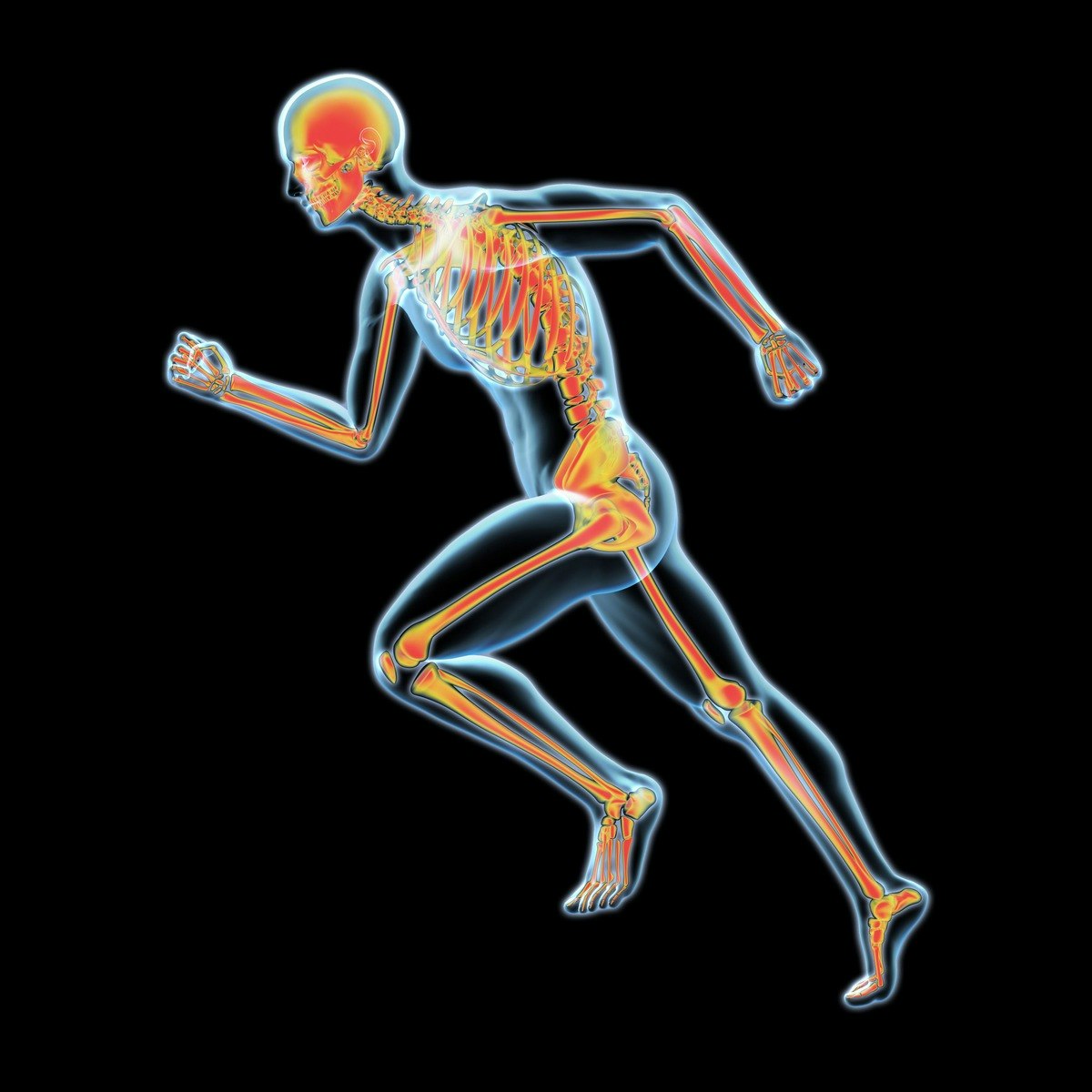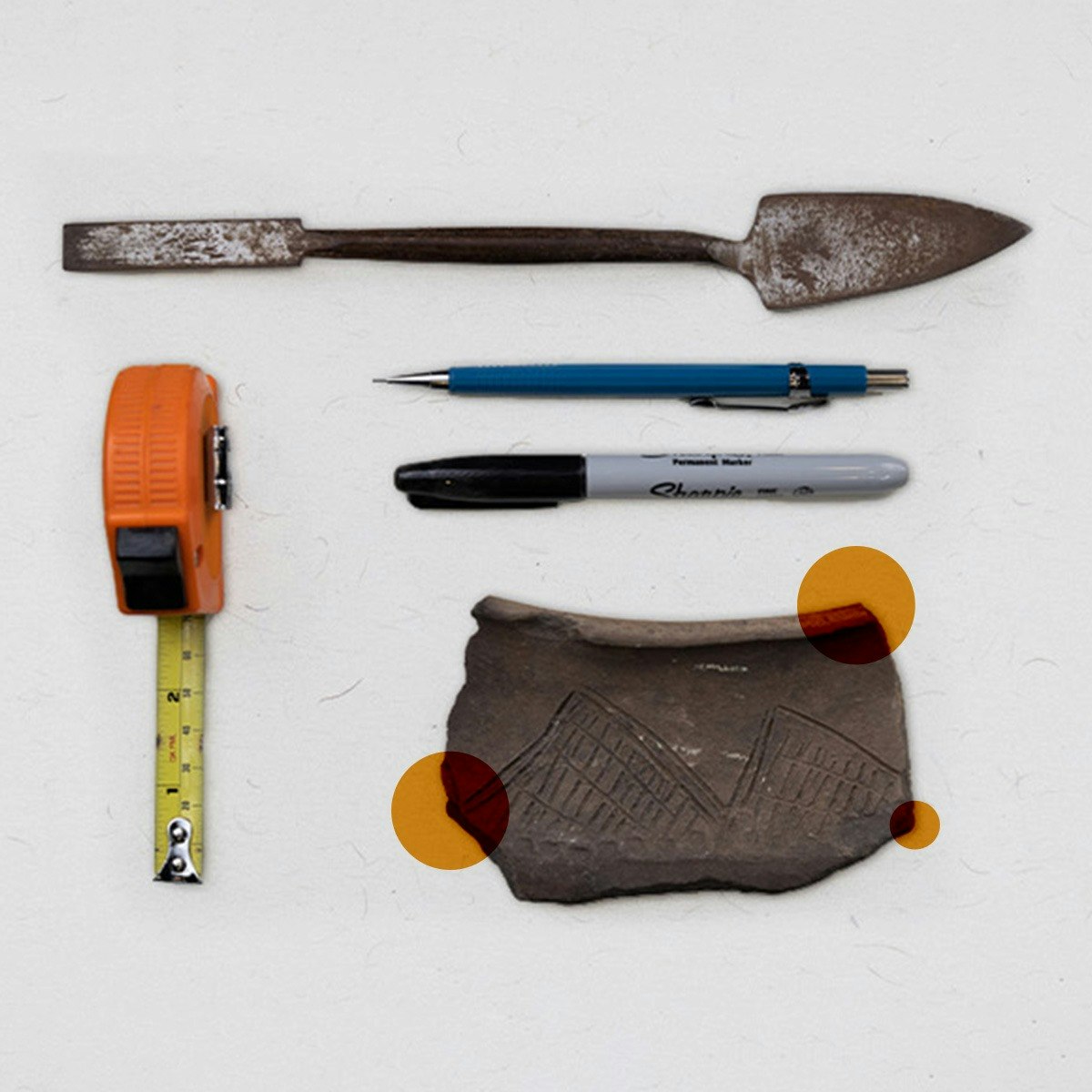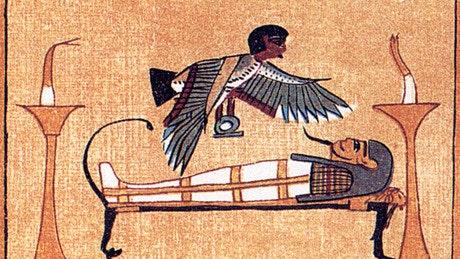Forensic Anthropologist
Forensic Anthropologist: Unearthing Clues from the Past
Forensic anthropology is a specialized subfield of physical anthropology, focusing on the analysis of human skeletal remains in a legal context. Professionals in this field apply their knowledge of human osteology (the study of bones), archaeology, and anatomy to assist in identifying deceased individuals and understanding the circumstances surrounding their death. This often involves working with remains that are decomposed, skeletonized, burned, or otherwise altered, making them unsuitable for standard autopsy procedures. The work of a forensic anthropologist is crucial in criminal investigations, mass disaster victim identification, and historical inquiries.
Individuals drawn to this career often find deep satisfaction in applying scientific principles to solve complex puzzles and provide answers to families and legal authorities. The meticulous nature of examining skeletal evidence to determine age, sex, ancestry, and stature, as well as to identify signs of trauma or disease, can be intellectually stimulating. Furthermore, the opportunity to contribute to justice and bring closure in cases of missing persons or unidentified remains offers a profound sense of purpose. The field also involves an element of discovery, piecing together life stories from the silent testimony of bones.
Core Responsibilities of a Forensic Anthropologist
The daily work and overarching responsibilities of a forensic anthropologist are multifaceted, demanding a unique blend of scientific acumen, meticulous attention to detail, and strong collaborative skills. These professionals play a critical role within the medicolegal system, often working alongside other forensic specialists and law enforcement personnel.
Analyzing Skeletal Remains for Identification
A primary responsibility of a forensic anthropologist is the detailed examination of human skeletal remains. This involves creating a biological profile of the deceased, which includes estimating age at death, sex, ancestry, and stature. They meticulously study the morphology and measurements of bones, looking for developmental markers, degenerative changes, and unique anatomical features that can aid in identification. Techniques such as examining dental development and wear patterns, pubic symphysis changes, and long bone fusion are commonly employed.
The analysis extends beyond basic demographic information. Forensic anthropologists also look for evidence of past injuries, diseases, or surgical procedures that could be unique to an individual and assist in matching remains to missing persons records. This detailed work requires a profound understanding of human skeletal variation and the ability to distinguish between normal anatomical features and those resulting from trauma or pathology.
This foundational aspect of forensic anthropology can be further explored through dedicated study. Understanding the intricacies of the human skeleton is paramount.
Assisting in Legal Cases: Time of Death and Trauma Analysis
Forensic anthropologists play a crucial role in legal investigations by providing expert analysis on skeletal trauma and contributing to estimations of the postmortem interval (time since death). They examine bones for evidence of injuries that occurred at or around the time of death (perimortem trauma), such as fractures, cut marks, or gunshot wounds. This analysis can help determine the type of weapon used and the nature of the forces involved.
Distinguishing perimortem trauma from injuries that occurred long before death (antemortem trauma) or damage that occurred after death (postmortem damage) is critical. Antemortem injuries will show signs of healing, while postmortem damage may exhibit different fracture patterns or coloration compared to injuries sustained by living bone. While precise time of death determination is often complex, forensic anthropologists can contribute by analyzing the state of decomposition and environmental factors affecting the remains.
Their findings are compiled into detailed reports and they may be called upon to testify as expert witnesses in court, explaining complex scientific information in a clear and understandable manner.
For those interested in the broader field of forensic science and how it intersects with legal proceedings, several resources offer comprehensive overviews.
The following books provide in-depth knowledge relevant to crime scene investigation and forensic pathology, which are closely related to the work of forensic anthropologists.
Collaborating with Forensic Pathologists and Law Enforcement
Forensic anthropology is rarely a solitary endeavor. Professionals in this field work closely with a range of other experts, most notably forensic pathologists, medical examiners, coroners, and law enforcement agencies. Forensic pathologists are medical doctors who determine the cause and manner of death; anthropologists provide specialized skeletal analysis that complements the pathologist's examination, particularly when remains are decomposed or skeletonized.
Collaboration with law enforcement begins at the crime scene or recovery site. Forensic anthropologists may assist in the proper excavation and collection of human remains, ensuring that all evidence is meticulously documented and preserved. They provide crucial information to investigators that can help narrow down victim identity, reconstruct events, and identify potential suspects. This interdisciplinary teamwork is essential for the successful resolution of forensic cases.
Understanding the broader context of anthropology and archaeological methods can be beneficial, as these disciplines provide foundational knowledge for forensic applications.
Educational Pathways to Becoming a Forensic Anthropologist
The journey to becoming a forensic anthropologist is academically rigorous and requires a significant commitment to specialized education and training. Aspiring professionals must navigate a path that typically involves multiple degrees and often culminates in advanced certification.
Undergraduate Degrees: Building the Foundation
The first step towards a career in forensic anthropology is obtaining a bachelor's degree. While a specific "forensic anthropology" undergraduate major is rare, degrees in general anthropology, physical (or biological) anthropology, or archaeology provide a strong foundation. Coursework should emphasize physical anthropology, human osteology, human anatomy, and archaeology.
Alternatively, a bachelor's degree in a related science such as biology, chemistry, or forensic science can also be a suitable starting point, provided it is supplemented with relevant anthropology courses. Regardless of the major, it's beneficial to take classes in statistics, chemistry, physics, and anatomy to develop a well-rounded scientific background. Gaining early exposure to laboratory work and research methodologies is also highly advantageous.
Students exploring this path can begin with introductory courses to gauge their interest and build fundamental knowledge. OpenCourser offers a variety of science and social sciences courses that can serve this purpose.
Graduate Programs and PhD Requirements
A bachelor's degree alone is generally insufficient for a career as a practicing forensic anthropologist. Most positions require at least a master's degree (M.A. or M.S.) in anthropology with a specialization in physical/biological anthropology or forensic anthropology. Master's programs typically involve advanced coursework, research, and often a thesis based on original research.
For those aspiring to lead research, teach at the university level, or achieve the highest levels of certification and employment, a doctoral degree (Ph.D.) in physical or biological anthropology with a strong emphasis on forensic anthropology is usually necessary. Ph.D. programs are intensive, requiring several years of advanced coursework, comprehensive exams, and the completion of a dissertation presenting significant original research. Throughout their graduate studies, students are strongly encouraged to gain practical casework experience by assisting established forensic anthropologists.
This extensive educational commitment means that becoming a forensic anthropologist can take approximately six to ten years of university study beyond high school.
The books listed below delve into the core principles and applications of forensic science, which are integral to advanced study in forensic anthropology.
Certifications: Achieving Professional Recognition
While not always legally mandated for employment, certification by the American Board of Forensic Anthropology (ABFA) is highly regarded and often preferred or required for many positions, particularly those involving expert testimony. The ABFA offers Diplomate status to individuals who meet stringent requirements. These typically include holding a Ph.D. in anthropology (or a closely related field with a significant focus on forensic anthropology, human osteology, and anatomy), demonstrating extensive casework experience, providing letters of recommendation, and passing rigorous written and practical examinations.
Achieving ABFA certification signifies a high level of competence and adherence to professional ethical standards. It demonstrates to the legal system and employers that the individual has achieved a recognized standard of expertise in the field. Maintaining this certification often requires ongoing continuing education, such as attending conferences and participating in research.
The path to certification underscores the specialized nature of this profession. As of recent reports, the number of ABFA-certified forensic anthropologists remains relatively small, highlighting the field's exclusivity.
Essential Skills and Competencies
Success as a forensic anthropologist hinges on a diverse set of specialized skills and personal competencies. Beyond academic qualifications, practitioners must possess a keen analytical mind, meticulous work habits, and the ability to communicate complex findings effectively. These attributes are crucial for navigating the scientific, legal, and ethical dimensions of the profession.
Osteology and Skeletal Analysis Techniques
A profound knowledge of human osteology – the study of bones – is the cornerstone of forensic anthropology. This includes the ability to identify every bone in the human body, understand normal anatomical variation, and recognize developmental changes throughout the lifespan. Practitioners must be adept at applying various analytical techniques to derive information from skeletal remains, such as estimating age, sex, ancestry, and stature.
This involves familiarity with both metric (measurement-based) and non-metric (observational) methods of analysis. Furthermore, forensic anthropologists must be skilled in identifying and interpreting skeletal trauma, distinguishing between antemortem, perimortem, and postmortem injuries, and understanding the effects of taphonomic processes (changes to remains after death) on bone. This often requires a detailed understanding of bone biomechanics and pathology.
Developing these specialized analytical skills requires extensive training and hands-on experience.
These books offer deeper insights into the scientific analysis integral to forensic investigations.
Attention to Detail in Forensic Evidence Handling
Forensic anthropology demands an exceptionally high level of attention to detail. The evidence encountered, often fragmentary and subtle, requires meticulous examination and documentation. Every observation, measurement, and finding must be recorded accurately and systematically. This precision is vital not only for the scientific integrity of the analysis but also for the legal admissibility of the evidence.
Proper evidence handling procedures are paramount. This includes maintaining a clear chain of custody, preventing contamination, and ensuring that all analytical methods are scientifically valid and reliably applied. Whether working in the field at a recovery scene or in the laboratory, the forensic anthropologist must adhere to strict protocols to preserve the integrity of the remains and associated evidence. Small details can have significant implications in solving a case.
Courses that emphasize scientific methodology and analytical thinking can help cultivate this essential trait.
Communication Skills for Courtroom Testimony and Reports
While scientific expertise is fundamental, the ability to communicate findings clearly and effectively is equally important for a forensic anthropologist. This involves writing comprehensive, well-organized, and unambiguous reports that detail their methods, findings, and conclusions. These reports serve as official records and are often scrutinized by legal professionals.
Furthermore, forensic anthropologists are frequently called upon to testify as expert witnesses in legal proceedings. This requires the ability to explain complex scientific concepts and technical details in a way that is understandable to judges, juries, and attorneys who may not have a scientific background. Maintaining composure under cross-examination, presenting findings objectively, and adhering to ethical guidelines are crucial aspects of courtroom testimony. Strong oral and written communication skills are therefore indispensable.
Developing strong communication skills is an ongoing process, often honed through experience and specific training in scientific communication or expert witness testimony. You can browse Communication Studies courses on OpenCourser to find relevant learning opportunities.
Career Progression and Opportunities
The career path for a forensic anthropologist can vary, with opportunities existing in academia, government agencies, and private consulting. Advancement often depends on education, experience, certifications, and the development of specialized expertise. The field is known for being competitive, but dedicated individuals can find rewarding roles.
Entry-Level Roles: Gaining Initial Experience
Individuals with a master's degree in anthropology (with a focus on physical/forensic anthropology) may find entry-level positions, although opportunities are often limited and competitive. These roles might include positions as laboratory technicians, field assistants, or assistants in medical examiner or coroner offices. Such positions provide invaluable hands-on experience in skeletal analysis, evidence handling, and casework procedures under the supervision of more experienced professionals.
Some individuals might also find initial opportunities in related fields such as bioarchaeology or museum curation, which can provide relevant experience with human skeletal remains. Gaining practical experience through internships or volunteer work during graduate studies is highly recommended to enhance competitiveness for these entry-level roles.
For those starting out, building a strong foundational knowledge in related scientific disciplines is key. OpenCourser features a wide array of Biology and Archaeology courses that can supplement formal education.
Mid-Career Positions: Leading Analyses and Investigations
With several years of experience, often coupled with a Ph.D. and potentially ABFA certification, forensic anthropologists can advance to more responsible positions. These may include roles as lead forensic analysts in medical examiner's offices or law enforcement agencies, where they take primary responsibility for casework, report writing, and expert testimony.
At this stage, professionals may also develop a specialization, such as pediatric osteology, trauma analysis, or taphonomy. Some may become consultants, offering their expertise to various organizations on a case-by-case basis. For those in academia, mid-career often involves positions as associate professors, balancing teaching, research, and ongoing casework. Building a strong publication record and a reputation for reliable and expert analysis is crucial for advancement.
Continued professional development, including attending conferences and staying abreast of new research and techniques, is vital for mid-career forensic anthropologists. Advanced books on forensic techniques can be valuable resources.
Senior Roles: Consultation, Research, and Academia
Senior forensic anthropologists are typically highly experienced individuals with Ph.D.s and ABFA certification. They often hold leadership positions in governmental agencies, serve as directors of forensic anthropology laboratories, or are tenured full professors in university departments. In these roles, they may oversee complex investigations, manage teams of analysts, develop research programs, and train the next generation of forensic anthropologists.
Senior professionals may also be sought after as high-level consultants for national or international organizations, including human rights groups involved in investigating mass graves or identifying victims of conflict. Their expertise contributes significantly to policy development, standard-setting in the field, and advancing the science of forensic anthropology through research and publication. A long and distinguished career can lead to significant contributions to both science and justice.
Individuals in senior roles often have extensive experience in specialized areas like facial reconstruction or disaster victim identification.
Work Environments and Industry Sectors
Forensic anthropologists work in a variety of settings, reflecting the diverse applications of their expertise. The nature of their employment can range from full-time salaried positions to contractual or consultative work, often depending on the specific sector and geographical location.
Government Agencies
A significant number of forensic anthropologists are employed by government agencies at various levels. This includes federal agencies like the Federal Bureau of Investigation (FBI) and the Department of Defense (particularly the Defense POW/MIA Accounting Agency, DPAA, which works to identify missing military personnel). State and local government positions are commonly found within medical examiner or coroner offices, where forensic anthropologists assist in the identification of human remains and analysis of skeletal trauma.
Working in a government setting often involves direct involvement in active criminal investigations, disaster victim identification efforts, and providing expert testimony in court. These positions can be highly competitive and may require security clearances. The work environment is typically a laboratory setting, but field work for recovery of remains is also common.
The methodical nature of evidence collection is paramount in these roles.
Academic Institutions and Research Labs
Many forensic anthropologists are based in academic institutions, such as universities and colleges, where they hold positions as professors or researchers. In these roles, their responsibilities typically include teaching courses in anthropology, osteology, and forensic science, conducting scholarly research, and publishing their findings. Academic forensic anthropologists often engage in casework on a consultative basis for local law enforcement or medical examiners as part of their service activities or through university-affiliated laboratories.
Research labs within universities are crucial for advancing the field, developing new analytical techniques, and building comparative skeletal collections. These environments foster intellectual growth and the training of future forensic anthropologists. Academic positions usually require a Ph.D. and a strong record of research and publication.
Those interested in the academic and research aspects might explore foundational concepts in human history and biology.
International Organizations and Human Rights Investigations
Forensic anthropologists play a vital role in international human rights investigations, often working with organizations like the United Nations, the International Committee of the Red Cross, and various non-governmental organizations (NGOs). Their expertise is crucial in the excavation and analysis of mass graves, the identification of victims of genocide, war crimes, and other human rights abuses, and in providing evidence for international criminal tribunals.
This line of work can be emotionally and physically demanding, often involving travel to post-conflict zones or areas affected by mass disasters. It requires a high degree of cultural sensitivity, ethical awareness, and the ability to work under challenging conditions. The goal is often to provide closure to families, document atrocities, and contribute to efforts for justice and reconciliation.
The ethical considerations in such contexts are particularly complex. Professionals interested in this path may explore related fields like International Studies and Public Policy through OpenCourser.
Ethical Challenges in Forensic Anthropology
The practice of forensic anthropology is imbued with significant ethical responsibilities. Professionals in this field regularly encounter situations that demand careful consideration of respect for the deceased, cultural sensitivities, objectivity in analysis, and the legal ramifications of their work. Adherence to a strong ethical framework is paramount.
Handling Sensitive Remains and Contexts
Forensic anthropologists often work with human remains that are associated with traumatic events, such as homicides, mass disasters, or human rights violations. This requires a profound respect for the deceased and an awareness of the emotional impact on families and communities. The handling of remains must always be done with dignity and care, following established protocols to prevent damage or loss of evidence.
In contexts like mass disaster victim identification or the investigation of human rights abuses, the scale of death and the often-fragmentary nature of remains present unique challenges. Maintaining professionalism and compassion while conducting meticulous scientific work is essential. This also extends to the careful management and curation of skeletal collections used for research and teaching.
Ethical guidelines emphasize that the primary concern should always be the respectful treatment of the individual who was once a living person.
Bias Mitigation in Analysis and Interpretation
Maintaining objectivity and avoiding bias is a critical ethical challenge in forensic anthropology. Analysts must ensure their interpretations are based solely on scientific evidence and not influenced by circumstantial information from law enforcement or preconceived notions. Cognitive bias can unintentionally affect observations and conclusions, so awareness and mitigation strategies are important.
This includes being transparent about the limitations of analytical techniques and the certainty of conclusions. Forensic anthropologists should present their findings in an unbiased manner, whether in written reports or courtroom testimony. Financial compensation or other incentives should never influence an expert's opinion or testimony. The scientific integrity of the analysis must always take precedence.
Upholding these standards ensures that the work contributes reliably to the pursuit of justice.
Legal, Cultural, and Repatriation Considerations
Forensic anthropologists must navigate a complex landscape of legal and cultural considerations. Their work is intrinsically linked to the legal system, and they must be knowledgeable about rules of evidence, chain of custody, and courtroom procedures. Adherence to legal standards ensures the admissibility and credibility of their findings.
Cultural sensitivity is particularly important when dealing with remains from diverse populations or in international contexts. Different cultures have varied beliefs and practices concerning death and the handling of human remains. Forensic anthropologists must be aware of and respect these cultural norms, especially when working with indigenous communities or in cases involving repatriation of remains.
Ethical codes also address the confidentiality of case information and the responsible dissemination of findings. Navigating these multifaceted ethical responsibilities requires ongoing reflection and a commitment to upholding the highest professional standards.
Technological Advancements in the Field
The field of forensic anthropology is continually evolving, with technological advancements playing an increasingly significant role in enhancing analytical capabilities, improving accuracy, and expanding the types of information that can be gleaned from skeletal remains. These innovations are reshaping how forensic anthropologists approach casework and research.
3D Imaging and Virtual Reconstructions
Three-dimensional (3D) imaging technologies, such as computed tomography (CT) scanning and 3D surface scanning, have become valuable tools in forensic anthropology. These technologies allow for the creation of detailed virtual models of bones and even entire skeletons. These digital models can be used for documentation, metric analysis, trauma assessment, and even facial reconstruction.
Virtual reconstructions offer several advantages: they are non-destructive, allowing for repeated analysis without damaging the original remains; they facilitate sharing of data among experts; and they can be used to create precise measurements and visualizations that might be difficult or impossible with physical specimens alone. For example, CT scans can reveal internal bone structures and subtle fractures, while surface scanners can capture intricate external details.
While cost and accessibility can sometimes be limiting factors, the use of 3D imaging is becoming more widespread, offering powerful new ways to analyze and interpret skeletal evidence.
The application of technology extends to various aspects of forensic science. These books explore related technological applications.
Innovations in DNA Analysis from Skeletal Material
While forensic anthropologists primarily focus on the physical characteristics of skeletal remains, advancements in DNA analysis have significantly impacted the field, particularly in identification. Techniques for extracting and analyzing DNA from bone and teeth have become more refined, allowing for identification even from old or degraded remains.
Mitochondrial DNA (mtDNA), which is more abundant in skeletal material than nuclear DNA, can be used to establish maternal lineage. Advances in nuclear DNA analysis, including Short Tandem Repeat (STR) profiling, are also increasingly applied to skeletal remains when conditions permit. This genetic information can provide definitive identification by matching to databases or known relatives. Forensic anthropologists often work in conjunction with forensic DNA analysts to integrate skeletal findings with genetic data.
The continued evolution of DNA techniques promises even greater precision in identifying unknown individuals from skeletal evidence. You can explore related careers such as Forensic DNA Analyst.
Artificial Intelligence and Machine Learning Applications
The application of artificial intelligence (AI) and machine learning is an emerging area in forensic anthropology. Researchers are exploring how these technologies can assist in various aspects of skeletal analysis, such as ancestry estimation, sex determination, and age assessment from images or 3D models. AI algorithms can be trained on large datasets of skeletal measurements and characteristics to identify patterns and make predictions.
While still in relatively early stages of development and application, AI has the potential to improve the efficiency and objectivity of some analytical tasks. For instance, machine learning could help in sorting through vast amounts of imaging data or identifying subtle features that might be missed by the human eye. However, the ethical implications and the need for validation of these AI tools are critical considerations as the technology develops.
The integration of AI is not unique to forensic anthropology; it's a trend seen across many scientific disciplines, including those in the broader Health & Medicine field.
Global Demand and Market Trends
Understanding the employment landscape for forensic anthropologists requires looking at broader trends in forensic science and anthropology. While a highly specialized field, the skills of forensic anthropologists are valuable in various contexts globally, though the job market remains competitive.
Growth in Forensic Science Sectors
The overall field of forensic science has seen growth, driven by advancements in technology and an increased reliance on scientific evidence in legal proceedings. The U.S. Bureau of Labor Statistics (BLS) projects that employment for forensic science technicians is expected to grow 13% from 2022 to 2032, which is much faster than the average for all occupations. While the BLS does not provide specific data for forensic anthropologists, this general trend in forensic science suggests an increasing appreciation for specialized forensic expertise. Anthropologists and archaeologists, a related category, are projected to see a 4% job growth over the next decade (as of May 2023 data).
However, it is crucial to note that forensic anthropology is a very niche specialization within both anthropology and forensic science. The actual number of full-time positions specifically titled "Forensic Anthropologist" is limited. According to the American Academy of Forensic Sciences, full-time work in forensic anthropology is competitive, and many practitioners also work as university professors, undertaking casework on a part-time basis.
Individuals interested in understanding labor market dynamics can explore resources such as the Occupational Outlook Handbook provided by the BLS for broader occupational trends.
Impact of Cold Case Reinvestigations and Human Rights Work
Advancements in DNA technology and other forensic techniques have led to the reopening of cold cases, sometimes decades old. Forensic anthropologists may be called upon to re-examine skeletal remains in these investigations, applying modern analytical methods to uncover new leads or confirm identities. This can create sporadic but important opportunities for experienced practitioners.
Furthermore, there is a continuing need for forensic anthropological expertise in international human rights investigations and mass disaster victim identification. Organizations involved in these efforts often require skilled anthropologists to assist in the recovery, analysis, and identification of human remains in challenging contexts. While these roles may be project-based or contractual, they represent a significant area of impact for the field. The value of forensic anthropology in providing medico-legal evidence in such cases is increasingly recognized.
The global focus on human rights and accountability for atrocities suggests a sustained, if specialized, demand in this sector.
Emerging Markets and Competition
While established in many Western countries, the field of forensic anthropology is still developing in some regions of the world. As forensic science capabilities grow globally, there may be emerging markets for trained forensic anthropologists. However, the overall job market remains highly competitive. The specialized nature of the work, coupled with the limited number of full-time dedicated positions, means that aspiring forensic anthropologists face a challenging path.
To enhance job prospects, individuals typically need advanced degrees (often a Ph.D.), practical experience, and ideally, certification from bodies like the ABFA. Networking within the professional community and a willingness to be flexible in terms of location and type of employment (e.g., combining academic work with consultancy) can also be beneficial. The field attracts many interested individuals, but perseverance and a strong educational background are key.
Those considering this career should be realistic about the job market but also recognize the profound contributions they can make. Exploring resources like American Anthropological Association can provide further insights into the broader field of anthropology.
Frequently Asked Questions (Career Focus)
Embarking on a career in forensic anthropology often raises many questions. This section addresses some of the common inquiries from those considering this specialized and demanding field, aiming to provide clarity and realistic expectations.
What is the average salary for forensic anthropologists?
Salaries for forensic anthropologists can vary significantly based on education, experience, type of employer, and geographic location. The U.S. Bureau of Labor Statistics (BLS) does not provide specific salary data for "forensic anthropologist" but groups them with "anthropologists and archeologists." For this broader category, the median annual wage was $63,800 in May 2023. The lowest 10 percent earned less than $43,770, and the highest 10 percent earned more than $102,150. Some sources like ZipRecruiter report an average annual pay for a Forensic Anthropology role in the United States around $87,877 as of May 2025, with ranges typically between $58,500 and $111,000.
Forensic science technicians, another related occupation, earned a median annual salary of $64,940 in May 2023. Those employed by the federal government or in specialized research roles may earn higher salaries. It's important to remember that many forensic anthropologists work in academia and do casework on a consulting basis, which can also affect overall earnings.
Given the variability, prospective forensic anthropologists should research salary expectations specific to their intended career path and location. For example, data from Canada suggests an average forensic anthropology salary of around $91,982 per year.
How competitive is the job market?
The job market for forensic anthropologists is widely considered to be highly competitive. This is due to several factors: the field is very specialized, the number of full-time dedicated positions is limited, and there is often a significant number of qualified individuals seeking these roles. Many positions require advanced degrees (a Master's or, more commonly, a Ph.D.) and substantial practical experience.
The American Academy of Forensic Sciences notes that full-time work is limited and positions are typically very competitive. While the broader field of forensic science shows strong growth, this doesn't directly translate to a large number of openings specifically for forensic anthropologists. Aspiring professionals should be prepared for a challenging job search and may need to be flexible regarding location and the nature of their employment, potentially combining academic roles with consultancy work.
Despite the competition, the unique skills of forensic anthropologists are in demand in specific contexts, such as medico-legal investigations, human rights work, and disaster victim identification.
Can I transition from archaeology to forensic anthropology?
Yes, a background in archaeology can be a very strong foundation for transitioning into forensic anthropology. Archaeological training provides essential skills in excavation techniques, site mapping, recovery of remains, and understanding context, all of which are directly applicable to forensic casework, especially in outdoor scenes or buried remains scenarios. Many forensic anthropologists have academic backgrounds that include archaeology.
However, a transition typically requires additional specialized education and training in physical anthropology, human osteology, skeletal biology, human anatomy, and forensic-specific methodologies. This often means pursuing a graduate degree (Master's or Ph.D.) with a focus on physical/forensic anthropology. Coursework in statistics and forensic science would also be crucial. Gaining hands-on experience with human skeletal analysis in a forensic context would be a necessary step in this transition. For instance, you might consider exploring resources from the Archaeological Institute of America for broader archaeological context and then focusing on forensic specializations.
Some universities offer graduate programs that bridge these disciplines or allow for specialization in forensic applications of archaeology and anthropology. Consider exploring OpenCourser's Archaeology course listings for foundational knowledge.
Is fieldwork mandatory in this career?
While not all forensic anthropologists engage in fieldwork regularly, it is a significant component of the profession, particularly for those involved in the recovery of remains from crime scenes, mass graves, or disaster sites. Fieldwork can involve meticulous excavation, mapping, and documentation of remains and associated evidence. The skills for this often come from archaeological training.
Some forensic anthropologists may work primarily in a laboratory setting, analyzing remains that have been recovered by others. However, even lab-based anthropologists benefit from an understanding of field recovery techniques to better interpret the context of the remains. Many academic programs include fieldwork components, and practical experience in the field is often a valuable asset for employment. The extent of fieldwork can vary greatly depending on the specific job role and employer. For example, those working for organizations involved in human rights investigations or disaster response are likely to have more extensive fieldwork requirements.
What are the physical and emotional demands of the job?
A career in forensic anthropology can be both physically and emotionally demanding. Physically, fieldwork may involve working in challenging outdoor conditions, including extreme weather, difficult terrain, and potentially hazardous environments. It can require meticulous excavation, sometimes in cramped or uncomfortable positions, and the careful lifting and transport of fragile remains. Laboratory work, while less physically strenuous, requires prolonged periods of concentration and attention to detail.
Emotionally, forensic anthropologists regularly confront death and human tragedy. They may deal with decomposed remains, evidence of violence, and the grief of families seeking answers. Working on cases involving mass disasters or human rights abuses can be particularly taxing. Maintaining professional objectivity while dealing with sensitive and often disturbing material requires emotional resilience, compassion, and strong coping mechanisms. The work can be incredibly rewarding in bringing closure or justice, but the emotional toll is a significant consideration.
How does this role differ from a forensic pathologist?
While both forensic anthropologists and forensic pathologists deal with deceased individuals in a legal context, their roles and training are distinct. A forensic pathologist is a medical doctor (M.D. or D.O.) who has specialized in pathology and then further sub-specialized in forensic pathology. Their primary role is to determine the cause and manner of death by performing autopsies on relatively intact bodies. They examine soft tissues, organs, and bodily fluids in addition to bones.
A forensic anthropologist, on the other hand, typically holds a graduate degree (Master's or Ph.D.) in anthropology with a specialization in physical/biological anthropology and human osteology. They are experts in the human skeleton and are primarily called upon when remains are skeletonized, decomposed, burned, or otherwise unidentifiable through standard autopsy procedures. Their focus is on analyzing skeletal remains to create a biological profile (age, sex, ancestry, stature), identify trauma to bones, and assist in estimating the postmortem interval. While pathologists may consult bones, anthropologists provide a more in-depth skeletal analysis. The two professions often collaborate closely.
For those considering related medical fields, OpenCourser offers a variety of Medicine courses.
Becoming a forensic anthropologist is a challenging yet potentially deeply rewarding career path for those with a passion for science, a meticulous nature, and a desire to contribute to justice and understanding. It demands significant educational commitment and resilience, but offers the profound opportunity to give a voice to those who can no longer speak for themselves.










